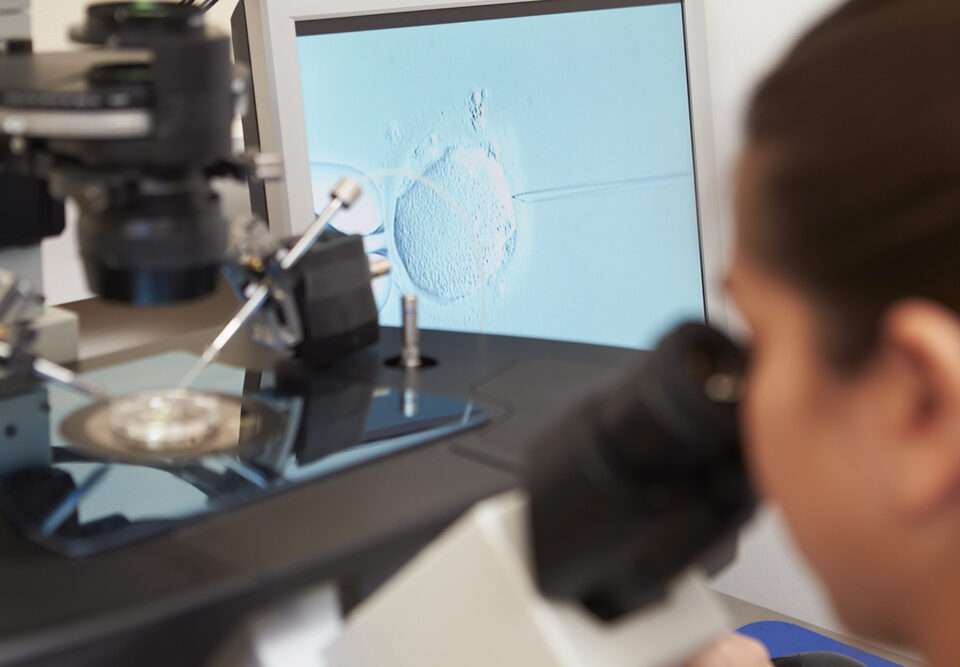Serbia Considering Surrogacy
十一月 16, 2014France gets chided regarding international surrogacy
十二月 23, 2014Last spring, a judge awarded Karla Dunston, a resident of Chicago, custody of frozen embryos. The judgment spurred an appeal. Standing on the opposite side of the appellate courtroom trying to overturn this ruling is Dunston’s former boyfriend, Jacob Szafranski.
Before diving into the present, here is the backstory.
These embryos were frozen a few years ago. What prompted the decision was Dunston’s lymphoma diagnosis. Realizing her cancer treatments could trigger infertility, she turned to her “then” boyfriend, Szafranski, for help. He agreed to donate sperm.
Lauren Jiggetts, a reporter for NBC Chicago quotes the former boyfriend stating, “We were in a romantic relationship and we had known each other for a while, and of course I was concerned about supporting her in whatever way I could.”
One year later, the relationship ended and Szafranski had a change of heart about the embryos.
Szafranski continues to state in this article from May, “In reading the consent and deciding to go ahead with everything, I really thought that was what my understanding of the situation was, that my consent was needed at the time of their use.” He continued, “Life changes, your feelings on things changes, your position on the world changes.”
 Since this time, Szafranski and Dunston have been entangled in a legal battle.
Since this time, Szafranski and Dunston have been entangled in a legal battle.
In Jiggetts’ piece, she quoted a portion of the judge’s ruling which drove the appeal. The judge said that Dunston’s, “desire to have a biological child in the face of the impossibility of having one without using the embryos outweighs Jacob’s privacy concerns, which are now moot.”
It was also revealed that Dunston had no intention whatsoever to request any financial support from Szafranski.
Her attorney, Abram Moore stated, “She simply does not want him to stand in the way of her very last chance to have her own biological children.”
On the flipside, Szafranski claims this legal battle has nothing to do with money or the threat of financial support. His objection leans in the direction of moral grounds claiming how he does not want a “child brought into this world,” against his will.
Now, the Illinois Appellate Court heard the case.
NBC Chicago reporter, Sarah Schulte, recently wrote in her article, “Szafranski’s legal argument before the Illinois Appellate Court is based on a consent form Szafranski and Dunston signed at the fertility clinic the day after he verbally agreed to help.”
Schulte quotes his attorney Brian Schroeder saying, “This form has a provision that states no use can be made of embryos without the consent of both parties.”
Dunston’s legal representatives are standing their ground.
According to Schulte, the appellate court heard their side of the argument highlighting, “while Szafranski has the right to change his mind about whether to donate sperm, he chose to donate it for the purpose of helping Dunston have children.”
Schulte continued, “Her lawyers say Szafranski promised Dunston several times that she could use the embryos for that purpose and insist she is not forcing Szafranski into parenthood, and is asking Dunston be declared a sperm donor with no legal or financial obligations to any resulting child.”
While a ruling is on its way, here’s my point of view.
I don’t think Szafranski, or anyone, should be forced to be a parent. Conversely, since they aren’t married, isn’t he a sperm donor without any rights? For example, in California, if you’re unmarried you need to have an agreement in writing that you are a parent. If you don’t, you aren’t.
A good example of this is the Jason Patric case. In this situation, they were unmarried and they didn’t have a written agreement that Patric was not a sperm donor. However, after the baby was born, Patric spent time with the child and his girlfriend, making an argument he is a parent under “presumed” parenthood.
In this case, we are dealing with embryos, not a child.
The court also should look at the “intent” of the parties when the embryos were created. To me, it appears as if it was Szafranski’s intent was to donate his sperm to his former girlfriend so that a pregnancy could be achieved and a child born.
It appears that the consent forms stated they need their permission to use the embryos. I do have to say that this is a bit unusual because typically embryos can be used for their intended purpose. And here, it was to achieve a pregnancy.
It’s going to be very interesting to see how the appellate court will rule on this case.
Legal experts are calling it a case which may influence a national precedent. And I have a feeling it will do just that.



